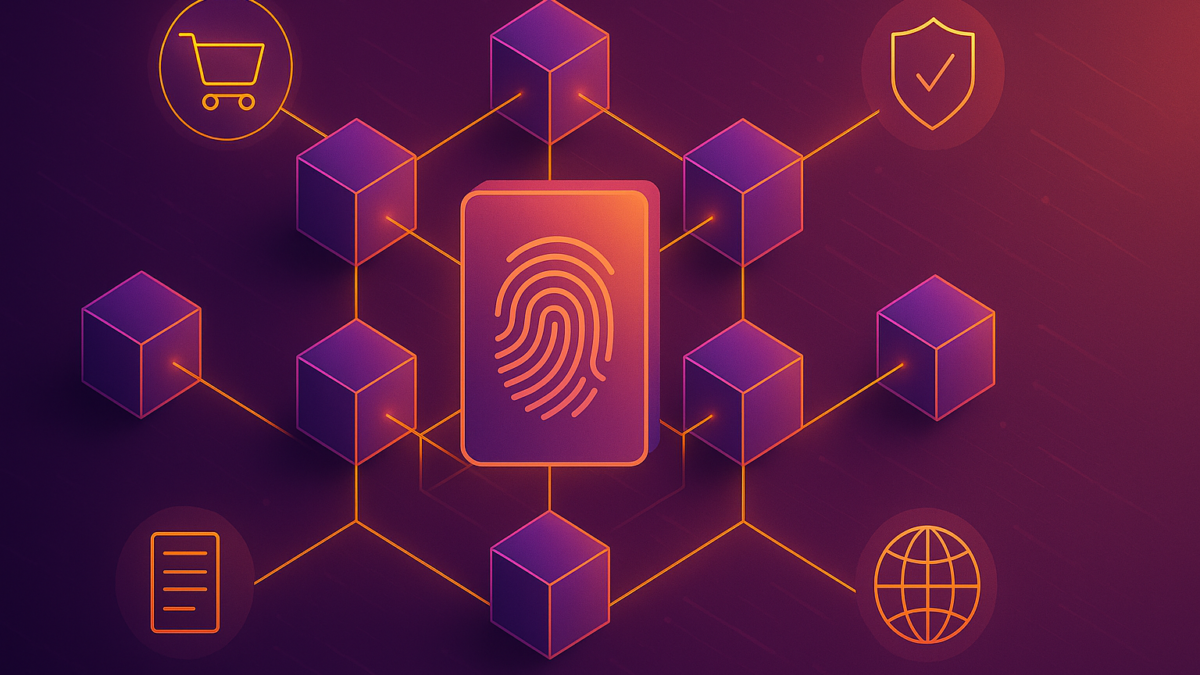Introduction
When most people hear “blockchain,” they think of Bitcoin or cryptocurrency. However, blockchain technology has evolved far beyond digital currencies. In 2025, it’s becoming a fundamental driver of efficiency, transparency, and trust in B2B ecosystems.
From logistics to legal contracts, blockchain is being adopted across industries to solve real-world business problems. This blog explores five non-crypto blockchain use cases that are transforming how B2B companies operate, proving that the true potential of blockchain extends well beyond crypto speculation.
Supply Chain Transparency
Blockchain enables real-time, tamper-proof tracking of goods across the entire supply chain. It provides:
- End-to-end visibility: Monitor product origin, shipping, and delivery in real time.
- Fraud prevention: Authenticate product authenticity and prevent counterfeits.
- Improved trust: All stakeholders access a single source of verified truth.
This level of transparency not only improves customer confidence but also helps businesses respond more quickly to disruptions. For industries like pharmaceuticals and food, where provenance is critical, blockchain provides a vital competitive edge.
Example: IBM and Maersk’s TradeLens platform uses blockchain to digitize and streamline global shipping logistics, reducing paperwork and increasing security in trade processes.
Smart Contracts for Business Automation
Smart contracts are self-executing contracts with terms coded directly into a blockchain. They:
- Reduce manual intervention
- Ensure automatic execution when conditions are met
- Eliminate intermediaries in legal or financial transactions
These contracts allow companies to automate processes like licensing, procurement, and milestone-based service agreements. They’re especially useful in sectors where time-sensitive delivery or compliance verification is essential.
Use Cases:
- Automating vendor payments
- Enforcing compliance terms
- Triggering service delivery milestones
Example: A B2B SaaS provider could automatically invoice and collect payment once usage exceeds a threshold, using smart contract logic built on Ethereum or Hyperledger.
Decentralized Identity Verification
In B2B operations, onboarding vendors, clients, and employees often requires multiple rounds of identity checks and document submissions. Blockchain streamlines this with decentralized identity (DID) systems that:
- Give users control over their digital identity
- Eliminate redundancies in document verification
- Prevent identity fraud with immutable records
With DIDs, once a user’s identity is verified, it can be reused across systems without resubmitting documents. This dramatically reduces friction in partnerships and hiring.
Example: Microsoft’s Azure AD and decentralized identifiers (DIDs) are being used to simplify KYC (Know Your Customer) processes and enterprise onboarding procedures across multiple organizations.
Cross-Border Payments & Invoicing
Even without using cryptocurrency as a payment method, blockchain infrastructure accelerates global transactions and increases trust in cross-border deals. Benefits include:
- Accelerated transaction speed by avoiding traditional banking delays
- Reduced currency conversion costs through peer-to-peer settlement options
- Enhanced payment security with immutable records
This is particularly useful for businesses working with international suppliers, freelancers, or offshore teams.
Example: RippleNet (not XRP token) is used by financial institutions to streamline global payment infrastructures between B2B parties, reducing costs and reconciliation time.
Intellectual Property & Document Management
Document integrity and IP protection are critical in industries like media, software, and R&D. Block chain provides a tamper-proof timestamped ledger for:
- Contracts
- Designs
- Trademarks
- Product iterations
This ensures all stakeholders can verify who created what, and when. It also simplifies IP enforcement and version tracking.
Example: Design studios and patent attorneys now use blockchain registries like IPwe to register and track ownership and licensing of intellectual assets.
Final Thoughts
In 2025, block chain isn’t just for crypto enthusiasts or speculative investors. It’s empowering B2B organizations to work smarter, more securely, and with greater operational agility. From supply chains to smart contracts, these use cases highlight blockchain’s growing importance in solving real-world business challenges.
Forward-thinking companies that adopt blockchain in these non-crypto applications will be better positioned to build trust, reduce costs, and create long-term competitive advantages.
Ready to explore blockchain-backed innovation for your B2B strategy?
CTA (Call to Action)
Ready to take your email campaigns to the next level?
At iTMunch, our Email Marketing Services help you connect, convert, and grow through data-driven strategies, automation, and creative storytelling.
See Also: Why Your Next White Paper Should Be Interactive: Trends & Best Practices for 2025





